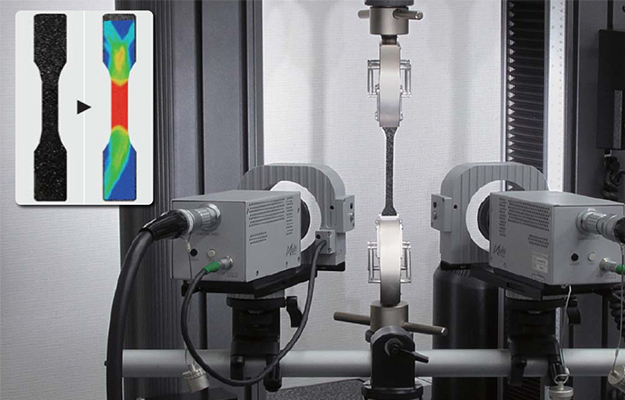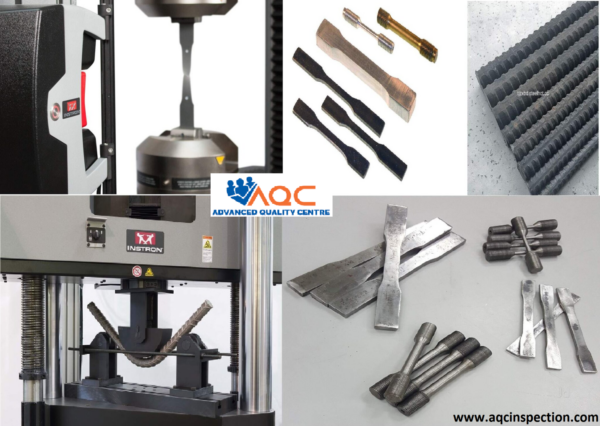Professional Materials Test Lab for Industry-Leading High Quality Criteria
Wiki Article
Expert Materials Testing Laboratory: Ensuring Item Performance
By subjecting products to strenuous screening methods, these laboratories provide useful insights that help producers make educated decisions. Partnering with an expert materials testing lab offers various benefits, consisting of enhanced item top quality, minimized threat of failing, and enhanced customer complete satisfaction. In this write-up, we will discover the value of products screening and why it is important for ensuring item performance (materials test lab).
Relevance of Materials Screening in Product Advancement
Materials screening plays an important role in ensuring the top quality and reliability of items throughout the growth procedure. It includes subjecting products to numerous tests and analyses to evaluate their mechanical, physical, and chemical buildings. Because it assists producers identify if the materials used in their products fulfill the called for requirements and specs., this testing is necessary.One of the main reasons products testing is very important in product growth is that it aids recognize possible weaknesses or flaws in the materials. By subjecting them to rigorous screening, manufacturers can assess their resistance, strength, and longevity to tear and wear. materials test lab. This information is important in developing products that can stand up to the needs of real-world applications and make certain lasting performance
Materials testing additionally aids in optimizing product layout and efficiency. By understanding the actions of different products under differing problems, producers can make educated decisions about picking the most suitable materials for specific applications. They can likewise recognize areas for enhancement and make essential modifications to boost product efficiency and dependability.
Moreover, materials testing plays an essential role in guaranteeing product safety and security and conformity with governing requirements. By testing products for toxicity, flammability, and other safety and security criteria, manufacturers can determine any kind of possible risks connected with their items. This enables them to take required actions to minimize these risks and make sure the safety and security of end-users.
Kinds of Tests Conducted in a Materials Testing Laboratory
A materials screening lab conducts a large range of tests to evaluate the buildings and efficiency of various products made use of in item advancement. These tests are critical in ensuring that products meet the called for criteria and perform as expected in real-world problems. One typically conducted test is the tensile test, which measures the toughness and ductility of a material by subjecting it to tension until it breaks. Compression tests, on the other hand, review a product's capacity to stand up to compressive forces. Tiredness tests examine a material's durability by subjecting it to repeated loading and dumping cycles, replicating real-life use conditions. Effect tests determine a product's resistance to intense and sudden forces, such as those experienced throughout an accident. Various other examinations consist of hardness testing, which identifies a product's resistance to impression or scratching, and thermal screening to evaluate exactly how materials reply to temperature level changes. Additionally, deterioration testing assesses a material's resistance to deterioration and destruction in different settings. By carrying out these examinations, materials checking labs make sure that producers can rely upon the efficiency and longevity of their products.Duty of Materials Screening in Ensuring Product Quality
One key aspect in making certain item quality is the role of products screening. Materials testing plays an essential role in identifying the performance, integrity, and safety of an item. By subjecting materials to different examinations and analyses, suppliers can determine any prospective flaws or weak points that might endanger the top quality of the final item.Materials screening helps in reviewing the physical, mechanical, and chemical properties of products used in the manufacturing procedure. This consists of testing for homes such as tensile strength, flexibility, firmness, and rust resistance. Via these tests, manufacturers can guarantee that the products satisfy the needed requirements and specifications.

By performing extensive materials screening, producers can gain useful insights right into the habits and qualities of the products they utilize. This information allows them to make informed choices relating to product choice, layout renovations, and quality assurance measures.
Ultimately, the role of materials screening in guaranteeing item quality is crucial for creating reliable, long lasting, and high-performing items that meet client assumptions and regulative needs. It aids manufacturers to determine and address any type of possible concerns early in the production procedure, bring about improved product performance and client satisfaction.
Benefits of Partnering With a Professional Materials Testing Lab
Partnering with an experienced products testing lab offers several essential advantages in making sure the performance and quality of items. By teaming up with a specialized testing lab, companies can tap right into their extensive expertise and know-how in materials evaluation and analysis. One of the main advantages is access to advanced testing equipment and techniques that may not be available in-house. These innovative techniques make it possible for the laboratory to accurately analyze the physical, chemical, and mechanical residential properties of materials, supplying valuable insights right into their efficiency and toughness.One more advantage is the unbiased nature of the screening process (materials test lab). Expert products evaluating labs run independently and have no vested interest in the result of the tests. This impartiality makes certain that the outcomes obtained are reliable and unbiased, allowing services to make informed choices based on the data given
Additionally, partnering with a professional laboratory helps to simplify the testing process and lower time-to-market. These laboratories have the required sources and capacities to deal with a wide variety of screening requirements successfully and successfully. By outsourcing materials testing, services can focus on their core proficiencies and conserve valuable time and resources.
In addition, collaborating with an experienced materials evaluating laboratory can enhance a firm's track record and reliability. By having their products checked try this site and accredited by a reliable third-party lab, organizations can demonstrate their dedication to top quality and customer complete satisfaction. This can assist construct click now trust with customers and distinguish their items out there.
Just How Products Screening Adds to Consumer Fulfillment
Materials testing plays an essential role in ensuring customer contentment with items. By subjecting materials to rigorous screening, suppliers can analyze their efficiency and top quality, ensuring that they fulfill or exceed customer expectations. This process assists to identify any kind of possible defects or weaknesses in the materials, permitting suppliers to make needed improvements prior to the item reaches the marketplace.Customer complete satisfaction is straight affected by the performance and longevity of the items they purchase. Materials screening helps suppliers examine the strength, adaptability, and toughness of products, ensuring that products can execute and stand up to the intended usage as expected with time. By making sure that items are made from top notch materials, makers can enhance customer satisfaction by providing items that meet their requirements and provide lasting efficiency.
Along with performance, materials screening also adds to customer safety. Checking products for potential risks, such as poisoning or flammability, aids producers make certain that their items meet security criteria and regulations. By offering reliable and risk-free items, suppliers can build depend on with customers, boosting their total satisfaction and loyalty.

Final Thought
To conclude, materials testing plays a crucial function in item development by guaranteeing item efficiency and quality. By carrying out numerous examinations in a materials testing laboratory, suppliers can identify any type of problems or weak points in their items and make necessary improvements. Partnering with a skilled products testing laboratory brings countless benefits, such as exact and reliable outcomes, proficiency in testing techniques, and compliance with market requirements. Eventually, products checking adds to customer contentment by supplying high-quality and dependable items to the marketplace.One of the main factors why materials testing is important in product development is that it aids identify potential weak points or flaws in the materials. By comprehending the behavior of different materials under differing conditions, suppliers can make informed choices regarding picking the most ideal products for certain applications.A products testing laboratory conducts a vast array of examinations to evaluate the buildings and efficiency of different products used in item growth. Other examinations include firmness testing, which identifies a material's resistance to indentation or damaging, and thermal testing to evaluate just how materials respond to temperature adjustments.In conclusion, products screening plays an important role in item growth by guaranteeing item efficiency and quality.
Report this wiki page